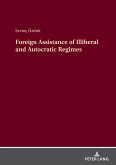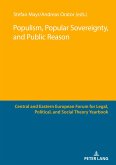While anti-European forces are still raging, pro-Europeans seem impotent and deprived of a strong, clear and convincing alternative. This book is an attempt to fill that void: reacting to the anti-European wave, it also outlines a strong criticism both of the current EU and of its advocates. Far from the Europeanist defence of the status quo, it proposes an original and radical project of European sovereignty. Its message is both critical and propositional.
This book is therefore original in its method, approach and content. It distinguishes itself from most of the literature on the subject by going beyond the narrow cleavage opposing mainstream anti- and pro- Europeans. In this general polemic, anti-European arguments usually promote a return to sovereignty at the national level, while pro-Europeans justify the existing EU configuration and its so-called "sharing" or "division" of sovereignty. Despite being clearly in favour of a deeper European integration in some fields, Sophie Heine refuses to throw away the classical concept of sovereign power. Relying on a rich literature and deploying a theoretical and strategic argument, she proposes to rehabilitate this notion at a supra-national level while avoiding the common traps of national sovereignty. This allows her to propose a redefinition of European federalism connected to her broader liberal approach.
This book is therefore original in its method, approach and content. It distinguishes itself from most of the literature on the subject by going beyond the narrow cleavage opposing mainstream anti- and pro- Europeans. In this general polemic, anti-European arguments usually promote a return to sovereignty at the national level, while pro-Europeans justify the existing EU configuration and its so-called "sharing" or "division" of sovereignty. Despite being clearly in favour of a deeper European integration in some fields, Sophie Heine refuses to throw away the classical concept of sovereign power. Relying on a rich literature and deploying a theoretical and strategic argument, she proposes to rehabilitate this notion at a supra-national level while avoiding the common traps of national sovereignty. This allows her to propose a redefinition of European federalism connected to her broader liberal approach.









